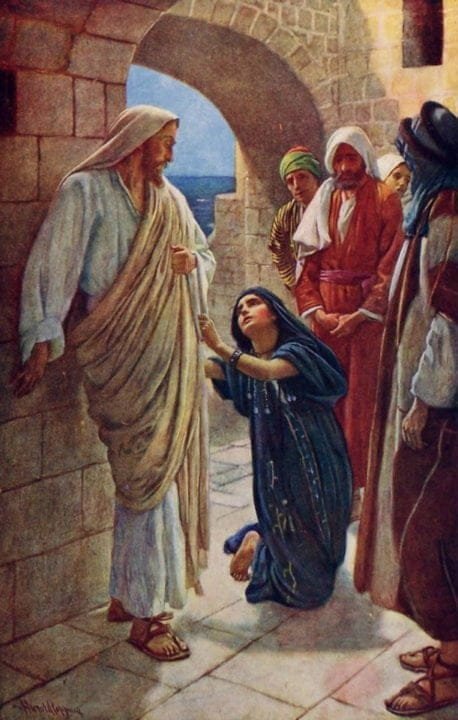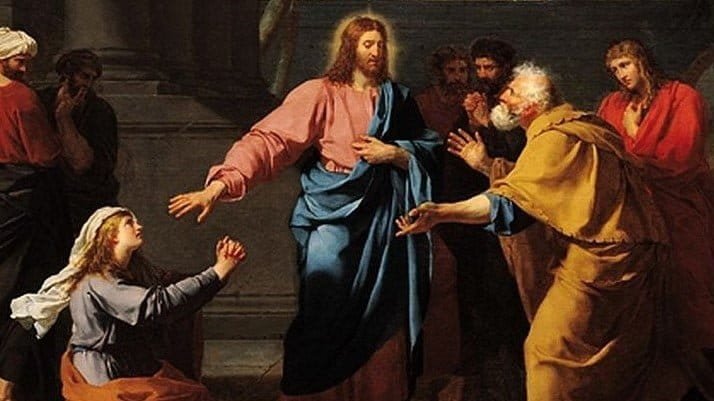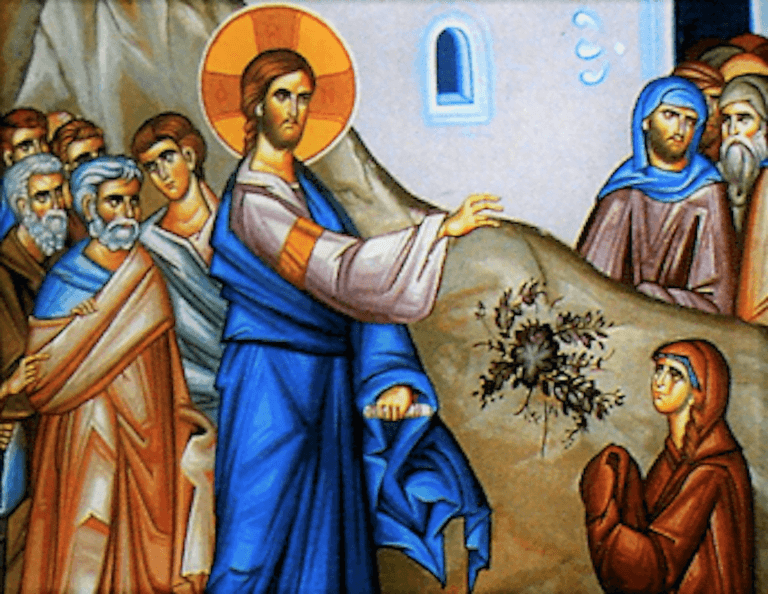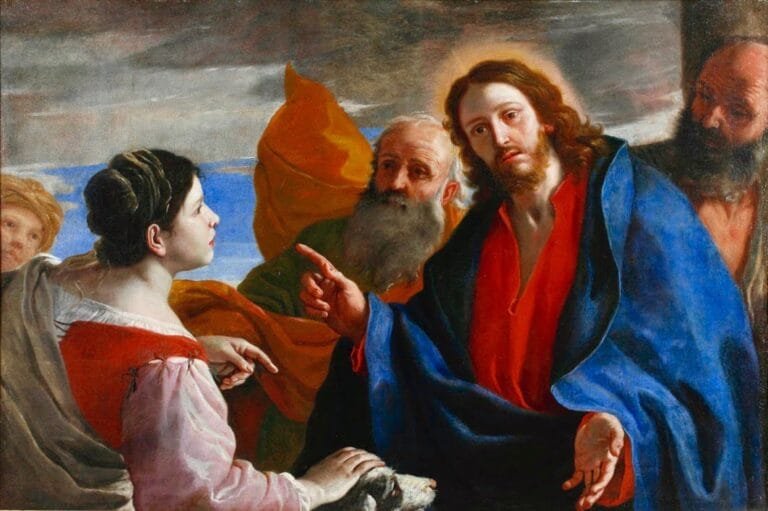POPE FRANCIS’ REFLECTION ON THE 20TH SUNDAY IN ORDINARY TIME YEAR A. WHAT TYPE OF FAITH IS GREAT?

ANGELUS ADDRESS
16 August 2020
Dear brothers and sisters, good day!
This Sunday’s Gospel (see Mt 15:21-28) describes the meeting between Jesus and the Canaanite woman. Jesus is to the north of Galilee, in foreign territory. The woman was not Jewish, she was Canaanite. Jesus is there to spend some time with His disciples away from the crowds, from the crowds whose numbers are always growing. And behold, a woman approached Him seeking help for her sick daughter: “Have mercy on me, Lord!” (v. 22). It is the cry that is born out of a life marked by suffering, from the sense of the helplessness of a mamma who sees her daughter tormented by evil who cannot be healed; she cannot heal her. Jesus initially ignores her, but this mother insists; she insists, even when the Master says to the disciples that His mission is directed only to “the lost sheep of the house of Israel” (v. 24) and not to the pagans. She continues to beg Him, and at that point, He puts her to the test, citing a proverb. It’s a bit…this seems almost a bit cruel, but she puts her to the test: “It is not fair to take the children’s food and throw it to the dogs” (v. 26). And right away, the woman, quick, anguished, responds: “Yes, Lord, yet even the dogs eat the crumbs that fall from their masters’ table” (v. 27).
And with these words, that mother shows that she has perceived the goodness of the Most High God present in Jesus who is open to any of His creatures necessities. And this wisdom, filled with trust, touches Jesus’s heart and provokes words of admiration: “Woman, great is your faith! Let it be done for you as you wish” (v. 28). What type of faith is great? Great faith is that which brings its own story, marked even by wounds, and brings it to the Lord’s feet asking Him to heal them, to give them meaning.
Each one of us has our own story and it is not always a story “of export”, it is not always a clean story… Many times it is a difficult story, with a lot of pain, many misfortunes and many sins. What do I do with my story? Do I hide it? No! We must bring it before the Lord. “Lord, if You will it, you can heal me!” This is what this woman teaches us, this wonderful mother: the courage to bring our own painful story before God, before Jesus, to touch God’s tenderness, Jesus’s tenderness. Let’s try this story, this prayer: let each one of us think of his or her own story. There are always ugly things in a story, always. Let us go to Jesus, knock on Jesus’s heart and say to Him: “Lord, if You will it, you can heal me!” And we can do this if we always have the face of Jesus before us, if we understand what Christ’s heart is like, what Jesus’s heart is like: a heart that feels compassion, that bears our pains, that bears our sins, our mistakes, our failures. But it is a heart that love us like that, as we are, without make-up: He loves us like that. “Lord, if You will it, you can heal me!” This is why it is necessary to understand Jesus, to be familiar with Jesus. I always go back to the advice that I give you: always carry a small pocket-size Gospel and read a passage every day. There you will find Jesus as He is, as He presents Himself; you will find Jesus who loves us, who loves us a lot, who tremendously wants our well-being. Let us remember the prayer: “Lord, if You will it, you can heal me!” A beautiful prayer. Carry the Gospel: in your purse, in your pocket and even on your mobile phone, to look at. May the Lord help us, all of us, to pray this beautiful prayer, that a pagan woman teaches us: not a Christian woman, not a Jewish woman, a pagan woman.
May the Virgin Mary intercede with her prayer so that the joy of faith might grow in every baptized person as well as the desire to communicate it through a consistent witness of life, that she give us the courage to approach Jesus and to say to Him: “Lord, if You will it, you can heal me!”
After the Angelus the Holy Father continued:
Dear brothers and sisters,
I continue to pray for Lebanon, and for other dramatic situations in the world that are causing people to suffer. My thought goes also to dear Belarus. I am following attentively the post-electoral situation in that nation and I call for dialogue, the rejection of violence and the respect for justice and the law. I entrust all Belarusians to the protection of the Madonna, Queen of Peace.
I affectionately greet all of you, people from Rome and pilgrims from various countries. In particular, I greet the Brazilian men and women religious present here in Rome – with so many flags – these religious are following spiritually the First National Week of Consecrated Life being celebrated in Brazil. Happy week of consecrated life. Ever onward! I extend my greeting also to the courageous young people of the Immaculata!
These days are days of vacation: it can be a time to restore the body, but also the spirit through moments dedicated to prayer, to silence and to relaxing contact with the beauty of nature, God’s gift. This should not allow us to forget the problems there are due to Covid: many families do not have work, have lost work, and have nothing to eat. Works of charity and drawing near to these families should also accompany our summer break.
I with all of you a blessed Sunday and enjoy your lunch! And please, do not forget to pray for me. Arrivederci!
SOURCE: http://w2.vatican.va/content/francesco/en/angelus/2020/documents/papa-francesco_angelus_20200816.html
EMPHASIS MINE


